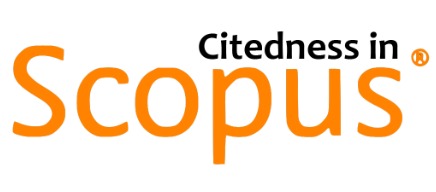Application of Islamic Value-Based Scrapbook Learning Media in Class II Civic Education Learning MI NU Nahdlatus Shibyan Ngemplak Undaan Kudus
Keywords:
Scrapbook Learning Media, Islamic Values, Pancasila and Citizenship Education (PPKn)Abstract
This study aims to find out clearly about the application of Islamic value-based scrapbook learning media in Pancasila and Citizenship Education (PPKn) learning, to determine the supporting and inhibiting factors of learning, as well as the successful application of Islamic values-based scrapbook learning media in PPKn learning class II MI NU Nahdlatus Shibyan Ngemplak Holy Invitation. This research is a qualitative research using the type of field research (field research). The subjects of this research are class II teachers and class II students with data collection methods, namely by conducting observations, interviews, and documentation. The results of this study are the application of Islamic value-based scrapbook learning media in Civics learning with several stages, namely the planning stage, implementation stage and learning evaluation stage. There are learning supporting factors, namely healthy physical condition, teacher's ability to teach, learning motivation, student activity, and facilities and infrastructure, while learning inhibiting factors are differences in student characteristics and learning time. Some of these learning stages are able to increase learning motivation with several indicators, namely concentration on learning, high curiosity, enthusiasm, readiness, and self-confidence as well as increasing religious values ​​with indicators of Islamic values, namely faith values, worship values, and moral values.
References
Akbar, Ahmad Maulana. (2013). Penerapan Nilai-nilai Islam, Pembentukan Akhlakul Karimah. STAIN Kediri.
Anifah, Umi, wawancara oleh penulis, wawancara 2, transkrip, 20 Agustus, 2022.
Arsyad, Azhar. (2014). Media Pembelajaran. Jakarta: PT RajaGrafindo Persada.
Been, Harun A..L.S. (2021). Guru dalam Ranah Profesi. Seri Publikasi Pembelajaran, 1(2), 30.
Dewi, Tiara Kusnia dan Yuliana, Rina. (2018). Pengembangan Media Pembelajaran Scrapbook Materi Karangan Deskripsi Mata Pelajaran Bahasa Indonesia Kelas III Sekolah Dasar. Jurnal Ilmiah Kependidikan 9(1), 20-21.
Dharma, Aditya dan Sudewiputri, Padmarani. (2021). Motivasi Belajar Mahasiswa pada Pembelajaran Daring Selama Pandemik Covid-19. Jurnal Pedagogi dan Pembelajaran 4(2), 299.
Firdausy, Muhammad Tamamu, wawancara oleh penulis, wawancara 3, transkrip, 13 Agustus, 2022.
Hayati, Miratul. (2022). Pengembangan Program Pembelajaran Tematik Berbasis Nilai-Nilai Keislaman untuk TK/RA. Jurnal Obsesi: Jurnal Pendidikan Anak Usia Dini 6(1), 458.
Hudah, Nur. (2019). Penanaman Nilai-Nilai Islam dalam Membentuk
Akhlak Mulia Melalui Kegiatan Mendongeng di TK
Terpadu Nurul Amal Buyuk Bringkang Menganti
Gresik. Jurnal Fikroh 12(2), 117.
Istiqomah, Novia dan Maemonah. (2021). Konsep Dasar Teori Perkembangan Kognitif Pada Anak Usia Dini Menurut Jean Piagetâ€, Jurnal Ilmiah Kependidikan Khazanah Kependidikan 15(2), 155.
Jennah, Rhodatul. (2009). Media Pembelajaran. Benjarmasin: Bantasari Pres.
Karo-Karo S, Isran Rasyid dan Rohani. (2018). Manfaat Media dalam Pembelajaran. Jurnal Axiom 7(1), 93.
Lubis, Maulana Arafat. (2020). Pendidikan Pancasila dan Kewarganegaraan (PPKn) di SD/MI Peluang dan Tantangan di Era Industri 4.0. Jakarta: Kencana.
Mulyaningtyas, Rahmawati dan Khasanah, Uswatun. (2021). Media Cici Drama dalam Pembelajaran Teks Drama Kelas VIII, Mardibasa: Jurnal Pembelajaran Bahasa dan Sastra Indonesia 1(1), 229-230.
Rahayu, Ani Sri. (2017). Pendidikan Pancasila dan Kewarganegaraan. Jakarta: PT Bumi Aksara.
Rahma, Fatikh Inayahtur. (2019). Media Pembelajaran (Kajian Terhadap Langkah-Langkah Pemilihan Media dan Implementasinya dalam Pembelajaran bagi Anak Sekolah Dasar). Pancawahana: Jurnal Studi Islam 14(2), 93.
Rohim, Abdul, wawancara oleh penulis, wawancara 1, transkrip, 6 Agustus, 2022.
Subakti, H., Watulingas K.H., Haruna, N.H., Ritonga, M.W., Simarmata, J., Fauzi, A., Yudhi Ardiana, D.P., Rahmi, S.Y., Chamidah, D., Catur Saputro, A.N. (2021). Inovasi Pembelajaran. Medan: Yayasan Kita Menulis.
Supendi, D. (2022). Balada Essay; 21 Opini Catatan Kecil. Solok: Yayasan Pendidikan Cendekia Muslim.
Supendi, D. (2015). Mengukur Kompetensi Guru. Bandung: Harian Umum Pikiran Rakyat, 10 Nopember 2015 halaman 6
Rohayati, S., Supendi, D., & Sanusi, M. (2022). Pengaruh Emotional Quotient (EQ) Terhadap Akhlak Siswa Kepada Guru Kelas X 2 di MA Daarul Ma'arif Pasawahan. Paedagogie: Jurnal Pendidikan dan studi Islam, 3(01), 25-34.
Susliana, Destin dan Wahyuni, Siti. (2019). Pengembangan Media Pembelajaran Scrapbook untuk Meningkatkan Pemahaman Materi Struktur Bumi dan Dinamikanya. Unnes Physics Education Journal 8(3), 221.
Tafonao, Talizaro. (2018). Peranan Media Pembelajaran Alam Meningkatkan
Minat Belajar Mahasiswa. Jurnal Komunikasi Pendidikan 2(2), 103-104.
Published
How to Cite
Issue
Section
Copyright and Licensing Policy
Paedagogie: Jurnal Pendidikan dan Studi Islam allows authors to retain the copyright of their work and to retain publishing rights. By submitting and publishing with this journal, authors agree to the following terms:
-
Copyright remains with the author(s), and they grant the journal the right of first publication. The work is published under a Creative Commons Attribution-ShareAlike 4.0 International License (CC BY-SA 4.0), which permits use, distribution, and reproduction in any medium, provided the original work is properly cited and any derivative works are distributed under the same license.
-
Authors are allowed to enter into additional non-exclusive distribution agreements (e.g., posting to institutional repositories, publishing in books), with acknowledgment of the work's initial publication in this journal.
-
Authors are encouraged to disseminate their work online (e.g., in repositories or on personal websites) before and during the submission process to increase visibility and impact.
Paedagogie: Jurnal Pendidikan dan Studi Islam supports open access and affirms that libre access with a CC BY-SA license or its equivalent is the optimal approach for scholarly communication. We prioritize free and open dissemination while encouraging the reuse and adaptation of published content under fair and equitable terms.
You are free to:
- Share — copy and redistribute the material in any medium or format
- Adapt — remix, transform, and build upon the material for any purpose, even commercially.
- The licensor cannot revoke these freedoms as long as you follow the license terms.















